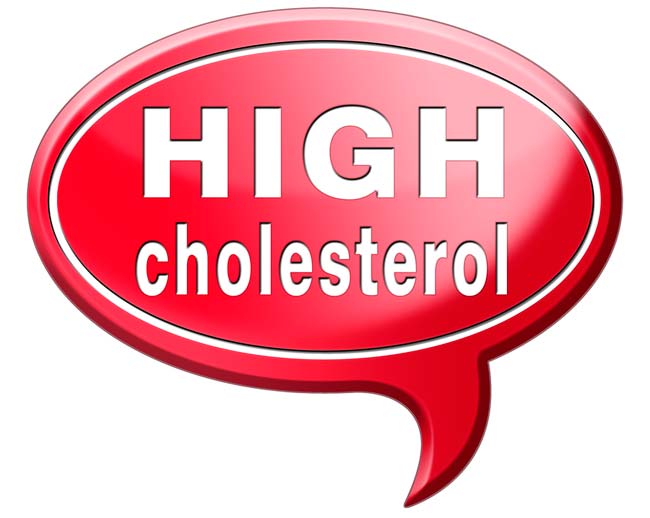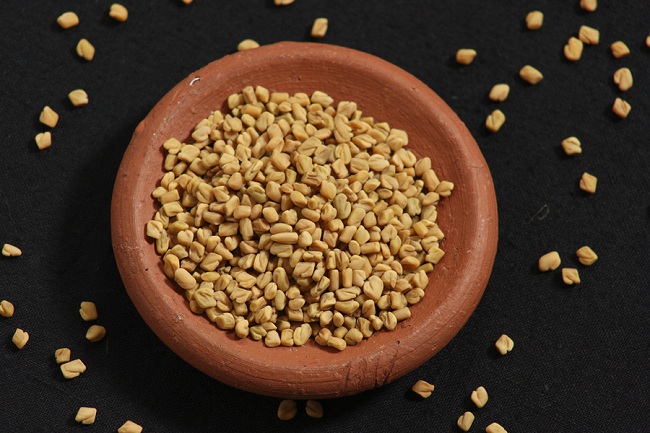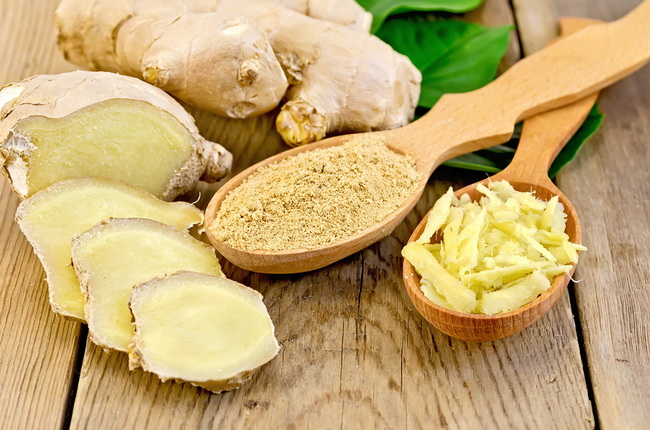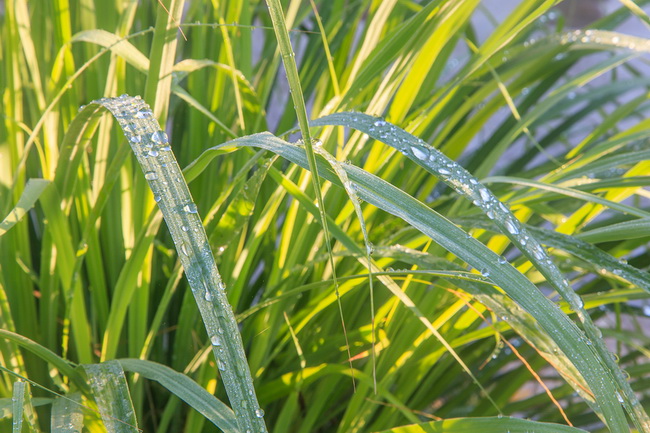- Make It Yourself Lavender Heart-Shaped Bath Bombs!
- 20 Things You Never Knew About “Down There”
- 12 Best Foods For Those Suffering From Arthritis Pain
- 12 Personal Hygiene Mistakes Almost Everyone Makes (Mom Never Told You About #4!)
- 15 Medicinal Plants And Herbs From The Cherokee People
- 12 Mind-Blowing Benefits Of Drinking Coconut Water During Pregnancy
- 12 Outstanding Winter Foods That Won’t Fatten You Up Like A Christmas Turkey
12 Best Herbs to Lower Cholesterol and Beat Heart Disease!

Photo credit: bigstock.com
With heart disease being the number one killer in America, and a serious problem in many other parts of the world, you want to do all you can to reduce your risk of developing this silent killer. One major way to do this is to control your blood cholesterol levels. Research shows that 1 out of every 2 men and 1 out of every 3 women will develop some type of heart problem at some point in their lives. Despite drugs and widespread information about the importance of keeping blood cholesterol levels low, high cholesterol continues to be quite common.
When there is too much cholesterol in the blood, the excess tends to accumulate along the walls of the arteries, which narrows then, leading to an obstruction of blood flow. When the heart muscle does not get enough blood, problems arise. Sometimes high cholesterol levels are due to genetics, obesity, sedentary lifestyle, alcohol abuse, chronic stress or, generally, a poor diet. Whatever the cause, high cholesterol leads to heart disease.
There are numerous ways you can lower your cholesterol levels, one of them being the consumption of herbs. Here are the 12 most common herbs that have been proven to lower cholesterol levels, and therefore, your risk of heart disease.
1. Garlic
Garlic is the number one herb when it comes to lowering cholesterol and improving circulation to the heart. Extensive studies have been conducted on this popular herb for its ability to regulate cholesterol in the body. Some studies show that it successfully lowers blood cholesterol by a few percentage points, and others show that when garlic is consumed on a frequent (daily) basis, cholesterol levels drop even more dramatically. Garlic also prevents blood clots, which means that if you have high cholesterol, this herb can be really beneficial as blood clots that form around the heart and/or brain are generally fatal. Garlic does thin the blood, so you should always consult your doctor if taking garlic supplements is right for you, especially if you are taking prescription medications or if you are using blood thinners.
2. Policosanol
This cholesterol reducing compound actually comes from sugar cane. There is another variety that is made from beeswax, but the type that is made from beeswax has not been shown to reduce cholesterol levels. If you want to consume this supplement, be certain the product states that it was taken from sugar cane.
3. Turmeric
The potent extract from turmeric, curcumin, is known to protect the body from atherosclerosis. Curcumin also suppresses the accumulation of cholesterol in the blood. The roots of the turmeric plant lower cholesterol levels down to the point that it can greatly reduce your chances of developing heart disease.
Continue to Page 2

Photo credit: bigstock.com
4. Red Yeast Rice
Red yeast rice has been shown to lower cholesterol in studies and was recently found in some over the counter supplements. The FDA removed some of these, as they felt that these products contained another substance that was too similar to a prescription medication Mevacor. New products have much lower levels of red yeast rice, but you can still find these supplements, it’s just that the FDA will no longer allow them to state that they can lower cholesterol levels. You will find red yeast rice supplements in your local health food store.
5. Fenugreek
Fenugreek has been used to improve digestion for at least one thousand years and it has been proven to not only lower blood cholesterol, but to lower blood sugar levels as well. The extracts of fenugreek, ethyl acetate, has been shown to reduce total cholesterol, LDL (the bad cholesterol), and triglycerides while increasing the good (HDL) cholesterol levels in a study done in 2012. This is because fenugreek has high phenolic and flavonoid compounds. Studies support that fenugreek has hypocholesterolemic effects and high activities of powerful antioxidants.
6. Licorice
Licorice is another powerful herb that is super effective when it comes to lowering cholesterol levels. There have been numerous studies done to determine the effectiveness of licorice on cholesterol levels and almost every single study confirms that this herb is outstanding. Even the American Cancer Society states that licorice is a great source of flavonoids, which are effective when it comes to lowering total cholesterol levels. This herb also appears to prevent the accumulation of cholesterol along the arterial walls. One of the active ingredients in licorice, glabridin, plays a major factor in delaying the oxidation of LDL cholesterol, which is thought to be one of the key agents that contribute to increased levels of cholesterol buildup in the arteries.
Continue to Page 3

Photo credit: bigstock.com
7. Ginger
Used for ages to help settle upset tummies, this herb is also capable of preventing heart disease by lowering cholesterol levels. A stone done in 2010 that was designed to show the anti-hypercholesterolaemic effects of ginger on 48 rats, showed that ginger showed a significantly lowered level of lipid profile parameters at the 2 week mark and even more so at the 4 week mark. Consuming ginger tea daily and adding it to your meals can make a big difference in your overall cholesterol levels.
8. Alfalfa
You probably have heard that alfalfa supplement or drinks contain plenty of vital nutrients and minerals, but not many people are aware of the benefits alfalfa can have on their cholesterol levels. This herb has been clinically proven to be most effective in lowering LDL cholesterol in the body. One study showed that consuming 40 grams of alfalfa three times each day had significant effects on LDL cholesterol levels, lowering them as much as 18 percent! Subjects who stopped consuming alfalfa after the test were found later to have resumed their normal cholesterol levels. This study has lead scientists to believe that something as simple as consuming alfalfa can be one of the easiest and most effective ways of stabilizing blood cholesterol levels. It’s thought that the saponins in alfalfa block the absorption of cholesterol as well as prevent its formation on the artery walls. Besides lowering LDL cholesterol levels, alfalfa was shown to have no effect on the good (HDL) cholesterol in the body.
9. Guggul
No, we did not misspell Google! Guggul is a substance that is derived from the mukul myrrh tree that is indigenous to India. It is widely used in Ayurvedic medicine and stabilizes both the good and bad cholesterol levels in the blood. Research shows that guggul prevents the liver from releasing excessive amounts of LDL cholesterol into the blood stream. Research has also found that this herb positively affects thyroid function and increases bile acid production, which also has effects on overall cholesterol levels.
Continue to Page 4

Photo credit: bigstock.com
10. Capsicum
We know that high levels of LDL cholesterol can have seriously adverse effects on the heart and other parts of the body. Studies show that capsicum is able to lower LDL cholesterol, which will lower your risk of heart attack, heart disease, and stroke. Capsicum also improves the metabolism rate, which can help your body burn more fat, rather than storing it. Capsicum can also suppress the appetite, so you might even drop a few pounds. This herb is loaded with antioxidants that kill free radicals, which are known to increase the levels of cholesterol in the body.
11. Artichoke
The leaves of artichoke plants contain a very unique fiber which blocks the absorption of cholesterol by the body, which will decrease the production of LDL compounds. One clinical study showed that this plant played an important role in managing mild hypercholesterolemia among overweight subjects after just 8 weeks by increasing their HDL and lower their LDL and overall total cholesterol levels.
SEE ALSO: Make Sense of Your Cholesterol Levels Infographic
12. Psyllium
Psyllium has been used for decades to treat gastrointestinal and digestive problems, but in recent years, researchers have found that this herb works wonderfully when it comes to controlling cholesterol levels. It’s believed that psyllium stimulates the conversion of cholesterol in to bile acids, as well as stimulating the production of bile acids. Some studies show that psyllium also works to control cholesterol due to its high fiber content. Fiber controls the amount of cholesterol that is absorbed by the intestine, so less cholesterol is able to circulate to the bloodstream.
A healthy diet which includes nuts, fish, beans, apples, and plenty of healthy vegetables is perhaps the best way to not only lower cholesterol levels naturally and lessen the risk of heart disease, but to keep the body as healthy and free of disease for a lifetime!
Always consult your physician before consuming any herbal products, especially if you are pregnant, nursing, or are taking prescription medication. Never stop taking your prescription medication before consulting with your doctor.
References:
































